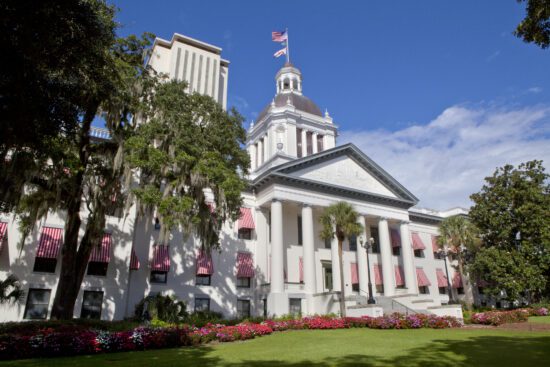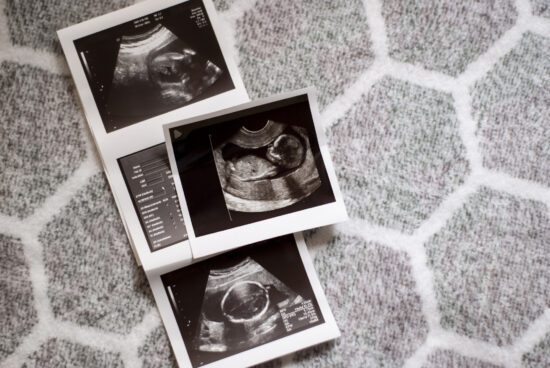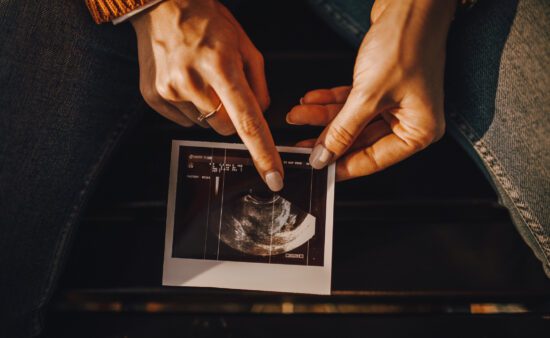Editor's Note: ERLC and Focus on the Family are hosting the first ever Evangelicals for Life event next year in Washington DC on January 21-22nd, featuring Russell Moore, Roland Warren, David Platt, Eric Metaxes, Kelly Rosati, Ron Sider and others.
WASHINGTON (BP)—The U.S. House of Representatives approved a ban on late abortions Wednesday (May 13) in a vote that was postponed nearly four months to the dismay of pro-life Americans.
The House voted 242-184 for the Pain-capable Unborn Child Protection Act, which will prohibit abortions on babies 20 weeks or more after fertilization based on scientific evidence that a child in the womb experiences pain by that point in gestation. The House leadership canceled a Jan. 22 roll call on the proposal after about two dozen Republicans, led by female members, expressed concerns about the legislation.
In the end, House leaders traded one abortion-related anniversary for another in holding the vote after appeals from pro-life organizations. They originally set the vote for the anniversary of the 1973 Roe v. Wade decision, the Supreme Court opinion that legalized abortion throughout the country. Instead, they held the vote on the second anniversary of the conviction of Kermit Gosnell, the notorious Philadelphia abortionist who killed hundreds of late-term babies inside and outside the womb.
Pro-life leaders hailed House passage of the proposal.
Russell Moore, the Southern Baptist Convention’s lead ethicist, thanked the House “for voting to end the abhorrent practice of late term abortion.”
“No nation can seriously call itself humane while 20 week-old unborn children are unprotected from the abortion industry,” said Moore, president of the Ethics & Religious Liberty Commission (ERLC), in a written statement. “We have much further to go as a government and as a culture in protecting the dignity of all human life, but this is a step in the right direction."
Carol Tobias, president of the National Right to Life Committee, said the bill “would save thousands of unborn babies annually from terribly painful deaths.”
Abortion rights advocates, meanwhile, criticized the measure.
Cecile Richards, president of Planned Parenthood Federation of America, called it a “misguided, dangerous bill” that is “part of a much bigger agenda to ban abortion completely.”
Nearly all of the House’s Democrats aligned with Planned Parenthood and its allies in opposing a bill that would protect often viable unborn children. Only four Democrats voted for the proposal, while 180 members of the party voted against it. On the GOP side, 238 members supported the bill, while four opposed it.
The House vote came only a week after The New York Times reported a new study showed prematurely born babies are surviving outside the womb earlier than previously thought possible. The study, published in The New England Journal of Medicine, found a small minority of babies born at 22 weeks gestation survived with few medical problems, though the point of viability has been considered to be 24 weeks, The Times reported May 6.
Revisions in the legislation, H.R. 36, in the last four months actually made the latest version stronger, some of the bill’s proponents said.
The newly approved measure includes the following changes from the earlier version regarding exceptions to the ban:
- A specially trained physician must be present to ensure the same treatment for a child who survives the abortion procedure as a prematurely born baby would receive.
- An adult victim of rape must receive counseling or medical treatment at least 48 hours prior to an abortion, and a pregnancy to a minor that results from rape or incest must be reported to a social services or law enforcement agency.
- A woman considering abortion must sign an informed consent form that includes an estimate by the doctor of the age of the unborn child and a description of the Pain-capable Unborn Child Protection Act.
On the eve of the vote, Moore and eight other pro-life leaders urged the House to approve the ban. Describing it as a “modest pro-life bill,” they said in a joint statement, “The United States is one of only seven nations to allow abortion on-demand after this point, putting us in the company of human-rights violators such as China and North Korea.”
Among the other endorsers of the statement were leaders of the Susan B. Anthony List, Family Research Council, March for Life and Concerned Women for America. A coalition with a similar makeup, including Moore, also had issued a statement April 22 calling for House leaders to schedule a vote after no action had been taken for three months.
The small group of Republican House members who sought delay of the Jan. 22 vote focused their concerns on the original bill’s rape exemption, which required report of an assault on women of all ages to law-enforcement authorities.
One of the apprehensions expressed by the Republican dissenters in January regarded how the bill would be perceived by women and young adults. Women and young people, however, supported the ban with the law-enforcement reporting requirement, according to a November poll by Quinnipiac University. That survey showed 60 percent of Americans, 59 percent of women and 57 percent of adults ages 18 to 29 favored the legislation.
The Democrats who broke with their party and voted for the bill were Reps. Henry Cuellar of Texas, Jim Langevin of Rhode Island, Daniel Lipinski of Illinois and Collin Peterson of Minnesota. The Republicans who opposed the legislation were Reps. Charles Dent of Pennsylvania, Bob Dold of Illinois, Rodney Frelinghuysen of New Jersey and Richard Hanna of New York. Rep. Jody Hice, R.-Ga., was the lone member to vote “present.”
On May 13, 2013, a jury found Gosnell guilty of the first-degree murder of three babies who were alive outside the womb at his West Philadelphia abortion clinic. They were only some of hundreds of babies at least six months into gestation who were killed outside the womb after induced delivery, typically by jabbing scissors into the back of their necks and cutting their spinal cords. Gosnell also was convicted of involuntary manslaughter in the death of a woman who received an abortion in his clinic and of 21 counts of violating a state ban on abortions after 24 weeks of pregnancy.










